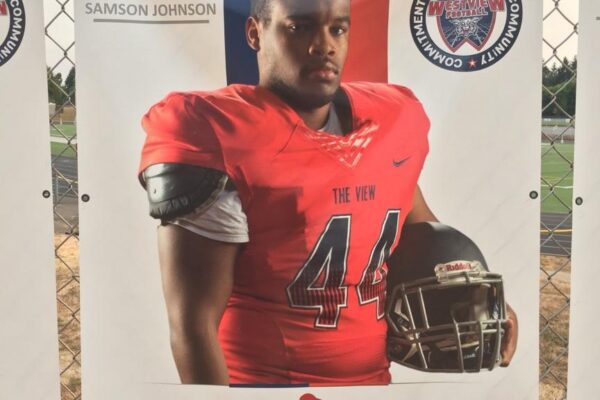Last month, a group of football players at Westview High School in Beaverton were publicly berated by their coach at their game for kneeling during the national anthem. The coach said he thought their act of protest was disrespectful to the country and to the military. He said that high school players didn’t have a platform like professional football players did and encouraged them to act as a team. At a subsequent game, the coach had the players lock arms to “stand in unity” rather than kneel. In both of these instances, the students’ rights to free speech and expression were violated.
One of the students reached out to us for help. Samson, a 17-year-old senior, felt that kneeling during the anthem was a powerful way to protest police brutality against Black people. Samson has been following the #TakeAKnee movement and agrees with football players like Eric Reid, Osi Umenyiora, and Jason Bell who have been outspoken about their choice to kneel during the anthem.
Yesterday, we wrote a letter to Westview High School and the Beaverton School District demanding that they take swift action to protect students’ First Amendment rights. We asked for assurances that all coaches and students be made aware of the right to take a knee. And we demanded that additional steps be taken to ensure that the football coaches would not retaliate against the players again for exercising his rights.
We are happy to report that the school quickly affirmed their students’ rights and informed us of steps that were taken to address the issue directly with the head football coach. But should we hear that student speech is being stifled again at Westview High or any public school in Oregon, lawyers at the ACLU of Oregon are ready to intervene.
Across the country, athletes are using their platforms to raise public consciousness and conversation about racial injustice. We support both their activism and their messages of freedom and equality. And when the courage of young students to fight for justice is met with anger and suppression from those tasked to build them up safely and supportively, we will not be silent.
The right to kneel during the national anthem is not a new concept. More than 70 years ago, the Supreme Court held that the First Amendment bars public schools from requiring students to participate in patriotic ceremonies. In the case West Virginia State Board of Education v. Barnette, the Supreme Court decided that a school could not require its students to salute the American flag during the pledge of allegiance. Students also can’t be forced to adopt uniformity of thought through either compelled actions or words. That case was decided during World War II, in 1943, when loyalty assumed high esteem. But even then, the Supreme Court admonished school administrators that their job is to train students to participate in our free society, not to turn them into mouthpieces for the government against their will. Since that decision, federal courts have made it clear that this same principle is true in the context of the national anthem.
Samson and the other students' rights in this context are well-established, and student protests, including those addressing deep and longstanding racial inequities, are consistent with core constitutional values. We must listen to those, like Samson, who are brave enough and free enough to speak truth to power.
#ImWithSamson



